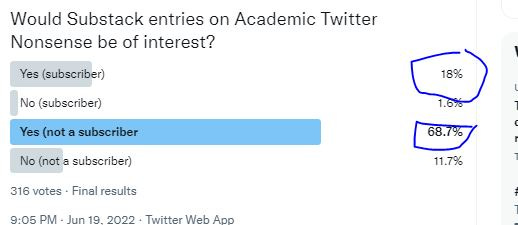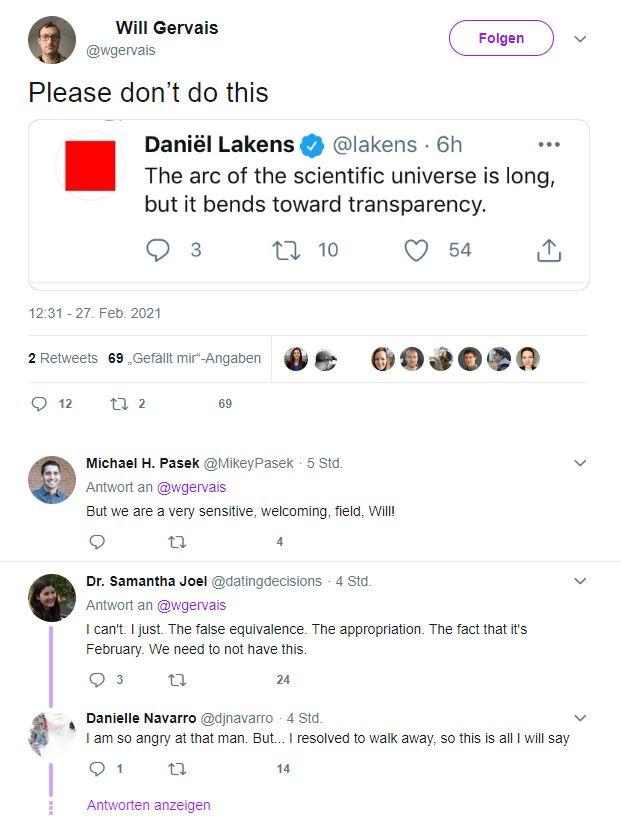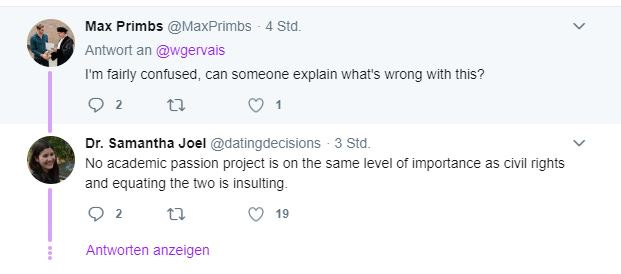One might think that academia — which supposedly prioritizes the quest for truth, at least in the social and natural sciences — would be characterized by robust and open exchange of ideas. And sometimes it is.
And sometimes it isn’t.
Welcome to Cancel U
Cancel U: The setting where academics seek to punish or silence people.1 Sometimes this includes ginning up outrage mobs to engage in campaigns calling for actual punishment, such as getting a duly accepted paper retracted (without evidence of fraud, malfeasance, or manifestly invalid data), or even getting someone fired. Sometimes, however, the punishment is purely social and can be found in various forms of public shaming, including and maybe especially, on social media. The goal may be to silence someone, or DDO them (denounce, demonize, and ostracize them). A grand irony of this (which will be duly illustrated in this Inaugural Cancel U entry) is that DDO is often done in the name of advancing DEI (Diversity, Equity, and Inclusion).
I thank the almost 90% of the voters here for embracing this sort of essay.
I hope to make this a recurring style of essay here: exposés of how cancel culture manifests in academia as bullying, social-moral vigilantism, denunciation, demonization and ostracism.
“Please Don’t Do This”
“Having a conversation about how to have the conversation prevents having the conversation.” Philosopher JP Messina, in a forthcoming book with the working title, Private Censorship.
Some context: Lakens is one of the leaders of efforts to reform scientific practices in psychology and related fields and, in my view one of the most effective reformers of the modern era. Transparency here refers to scientific transparency, you know, the type that is used to let in sunlight, long known as “the best disinfectant.”2
What’s the supposed problem with Lakens’ tweet?
Lakens’ tweet is so innocuous that no one can blame you for not having a clue as to why someone might object. It is an adaptation of a phrase from a Martin Luther King speech: “We shall overcome because the arc of the moral universe is long but it bends towards justice.” So what is the problem?
Gervais’s “allies” explain:
Twhackademia
I could go through how outright ridiculous each of these comments are but it would get tedious, so I’ll just do three.
There is no “false equivalence” (Joel tweet). Lakens’ tweet is a creative adaptation of an inspiring phrase for a different topic altogether. There is no claim or even implication of any sort of “equivalence,” let alone a false one.
“Appropriation” is not a sin (also Joel tweet). It is a bizarre term here, because authors and speakers creatively paraphrase and use ideas and turns of phrase from each other all the time!
Nothing was “taken out of context” (Zivony tweet). The usual “this is out of context” complaint is that doing so misleads the reader as to nuances in the quoted author’s ideas. That is not what is going on here. Indeed, Lakens did not make any point whatsoever about MLK’s ideas. He did not take anything out of context, he adapted the phrase, to make a different point. This is of course obvious to anyone who has ever read anything, at all, ever, as long as their mind has not been rotted by a cult-like ideology.
Given that repurposing of ideas, memes, and superb rhetorical turns of phrase happens all the time and is obviously a great source of cross-pollination of intellectual ideas, why is this one so beyond the pale that “Don’t do this”?
Casting Out Blasphemers: All the Cool Kids are Doing It!
“Freedom is the right to tell people what they do not want to hear.” Orwell.
You thought there was no such thing as blasphemy in the intellectually enlightened 21st century academy. Silly you.
Did you think that my “why is Lakens’ tweet so beyond the pale?" is a rhetorical question? No. It was a real question and I am pretty sure this is the answer:
In this case, it is the quasi-religious Cult of Social Justice.3 Forget undergraduate students, maybe they do go too far sometimes, but they are 18, 19, 20… and, yeah, they are officially adults and responsible for their own actions, but they are so young, I can forgive almost anything short of violence.
But academics (I include grad students here who are adults with degrees) are and have been adults for years. With full college educations. Many of these academics, typically in the name of Social Justice or some form of Diversity, Equity and Inclusion (sic), not only endorse bullying and purging campaigns, they have an already ugly long track record of attempting to punish fellow academics for expressing ideas that violate Social Justice shibboleths (and sometimes succeeding). You want lists? Go here or here. You want data packed but accessible essays? Go here or here. You want peer review? Go here or (see especially the “No Debate!” section) here.
Columbia linguist and NYTimes editorialist John McWhorter has been all over this. He wrote a book titled “Woke Racism: How a New Religion Betrayed Black America.” (I have a minor quibble with “religion”; most actual religious people that I know hold far more complex and nuanced views about things like sacredness and morality than displayed in this Twitter conversation, so I prefer the simple-mindedness, dogma, and imperviousness to outsiders captured by the term “cult” than “religion”).
MLK was not just a towering figure, but to cult members, a Holy One.
All you would-be blasphemers have been put on notice: Don’t Do This.
Whoops, I Did it Again!
To be sure, one can pursue justice without living in a cult. MLK is a prime example (more on this below). But on full display here are cult members seeking to cast out a blasphemer and communicate to any other would-be blasphemers that they risk denunciation and reputational damage if they engage in wrongspeak.
However, the best way to protect freedom of speech, academic freedom, and open inquiry, is to actually exercise freedom of speech, academic freedom, and open inquiry. So let’s do it again! And by “it” I mean “repurpose and paraphrase great MLK quotes for other purposes.”
Perhaps my favorite less well-known MLK quote is this, from Letter from a Birmingham Jail:
“In any nonviolent campaign there are four basic steps: collection of the facts to determine whether injustices are alive…”
Get the facts. MLK, even as part of a major political action campaign, starts with truthseeking. This is a message worth repeating (over and over and over) in any context, especially in academic research on anything but especially on anything controversial and especially-squared on anything politically controversial.
I sent this tweet shown below when Glenn Geher announced the existence of the new Society for Open Inquiry in the Behavioral Sciences (of which I am a Society Founder):
My tweet is a rephrasing of a quote from King’s Mountaintop speech. The original reads: “…somewhere I read of the freedom of assembly. Somewhere I read of the freedom of speech.” (Jacob Mchangama’s unbelievably good podcast on the history of free speech leads off each episode with this quote).
The new society aspires not so much to change academic culture (I doubt that’s happening anytime soon), but to establish itself as an island of scientific integrity through open inquiry and discourse in a system riddled with political- and activist-induced intellectual corruption. And part of that effort includes pushing back hard on the sanctimonious little academic vigilantes trying to punish, shame or silence those who do not share their views or values.
It was only after I sent out the “Somewhere, I read” tweet, that it hit me that this was exactly the type of thing for which Gervais & company tried to silence Lakens. So I could not resist replying to the original Gervais convo:4
If you go to the convo, you will see that several of the would-be moral inquisitors have now either deleted their tweets or taken their accounts private. From The Orwelexicon:
Misbackboned: Assigned vertebrate at birth, but actually spineless.
Or, being more charitable, perhaps my pushback has led them to rethink public shaming and silencing. Hope springs eternal.
There are Other Ways
Its possible that I am missing something. Let’s say there really is a good set of arguments to be made for why one should never paraphrase MLK speeches except when talking about MLK speeches. Seems implausible to the point of absurd but, if it can be done, it is still not necessary to publicly shame and silence anyone. Here is what they can do. Persuade people that there is a serious argument by writing stuff with themes and titles like:
Never Paraphrase MLK Except When Talking about MLK
or
Never Act Like MLK’s Ideas Apply Anywhere Except Civil Rights
or
Never Take Rhetorical Inspiration for Anything Other than Civil Rights from MLK’s Inspired Rhetoric
Good luck with that, Will.
Attempts to Silence One are Attempts to Silence Us All
Attempts at public shamings are not exclusively, and maybe not even primarily, directed at the supposed target. They are a way to communicate to anyone paying attention you better not do this or this could happen to you. “Please don’t do this” wasn’t an attempt to purge Lakens’ of his supposed rhetorical sins; if it was, it could have been handled privately, behind the scenes. But Gervais’s tweet was made on a public platform and directed toward a wide community of academics.
Failure to respond to these sorts of insidious unprovoked silencing attempts is often more unethical than responding. Failure to respond permits a censorious norm to take root and spread. It risks creating the impression that this type of silencing is widely accepted, maybe even justified, in the utter absence of an actual justification.
But it rarely takes much to (dare I say it?) disrupt the little would-be speech commissars. It often only takes a very small number of vocal dissenters to break the grip of a self-appointed mob of moral vigilantes. Sometimes, just one.
These sorts of silencing attempts need to be vigorously and publicly opposed. Even if “allies” come to support and justify this awful behavior, even if the aggressors do not change their stripes, public rejection of silencing is still worthwhile. Everyone else paying attention will see that attempts to silence also comes with reputational risks. Would-be denouncers will see that they have skin in the game. As a firm believer in the power of incentives, that is enough for me.
Deterrence and Resilience
Or, as I put it on Twitter:
One of the best known methods for getting bullies to back off is for bystanders to intervene. Truth — which is the ostensible goal of academic social science — cannot be found when the grim-faced commissars of cancel culture shut down inquiry, debate and discussion by smearing, shaming and punishing those who do not share their narrow-minded dogmas and shibboleths. We need more, not fewer, bystanders willing to stand up against DDO in academia, including but not restricted to on social media.
To be sure, though, I am not calling for conflict escalation but for conflict de-escalation. The Gervais tweet I highlighted here is from 2021. Social media creates the misimpression that everyone has to react to everything in the heat of the moment or all is lost. No. Play the long game. Its not about landing punches. It is about being able to stand on our own two feet, preferably, unmolested, but if necessary, even after having been punched in the face.
Hypocrisy?
You may be tempted to call me a hypocrite. “After all,” you might argue, “aren’t you calling out — denouncing, possibly inflicting reputational damage on — those you have exposed here and plan to expose in subsequent entries like this?”
I plead innocent to the hypocrisy charge.
There is quite a difference between an unprovoked attack, which is by virtue of being unprovoked also unjustified, and responding to an unprovoked attack, which has a long, deep, ethical and legal history of being recognized as justified. This moral principle is ancient, going back at least to the Hebrew Bible (“eye for an eye”; Taleb’s Skin in the Game places it earlier). Modern law recognizes the legality of inflicting damage on an assailant as part of self-defense or defending someone who has come under attack. NATO is (I hope) perennially ready to defend its members (“an attack on one, is an attack on all”). Informal social relations, however, can rarely be governed by these types of relatively clean legalistic principles or formal treaties. Of course, a nasty tweet is also not “equivalent” to crime or war. But the point is not equivalence.
The point is that deep moral principles highlight how unprovoked aggression (including verbal aggression aimed at silencing the target’s expression) is not “the same” as an aggressive response to the unprovoked aggression. Responding in kind to an unprovoked attack or denunciation is not morally equivalent to the unprovoked attack. Treating the response as equivalent would itself be an exquisite example of “false equivalence.”
I thank my Twitter followers for helping me come up with “Cancel U,” especially Obaid Omer, who came up with Cancel Ed as a sort of first pass, and who you can follow here.
“Sunshine is the best disinfectant.” Appropriating language used by a slew of people in entirely different contexts here (literal, political, legal). In fact, the frequency with which variations on this turn of phrase have been used by authors and speakers for very different purposes is a great example of the intellectual cross-pollination comes from “appropriating” such turns of phrase.
Wokism as cult v. religion. Wokism is merely quasi-religious because there are no supernatural entities. There are, however, saints, holy texts, shibboleths, blasphemers, and heretics, as shown throughout this essay. Interestingly, Gervais has published articles on religion, such as this one, titled Analytical Thinking Promotes Religious Disbelief. This is delicious when considered in context of everything in this essay.
“Appropriated” from Brittany Spears’ “Oops, I did it again.” For those interested in calling “false equivalence!,” I am pretty sure that what I am referring to in this essay is not the same as what she referred to.












I agree. No apologies. Fight back. More NY-tude can be pretty good disinfectant to the B.S. as well.
Please keep going, Lee. Great work.